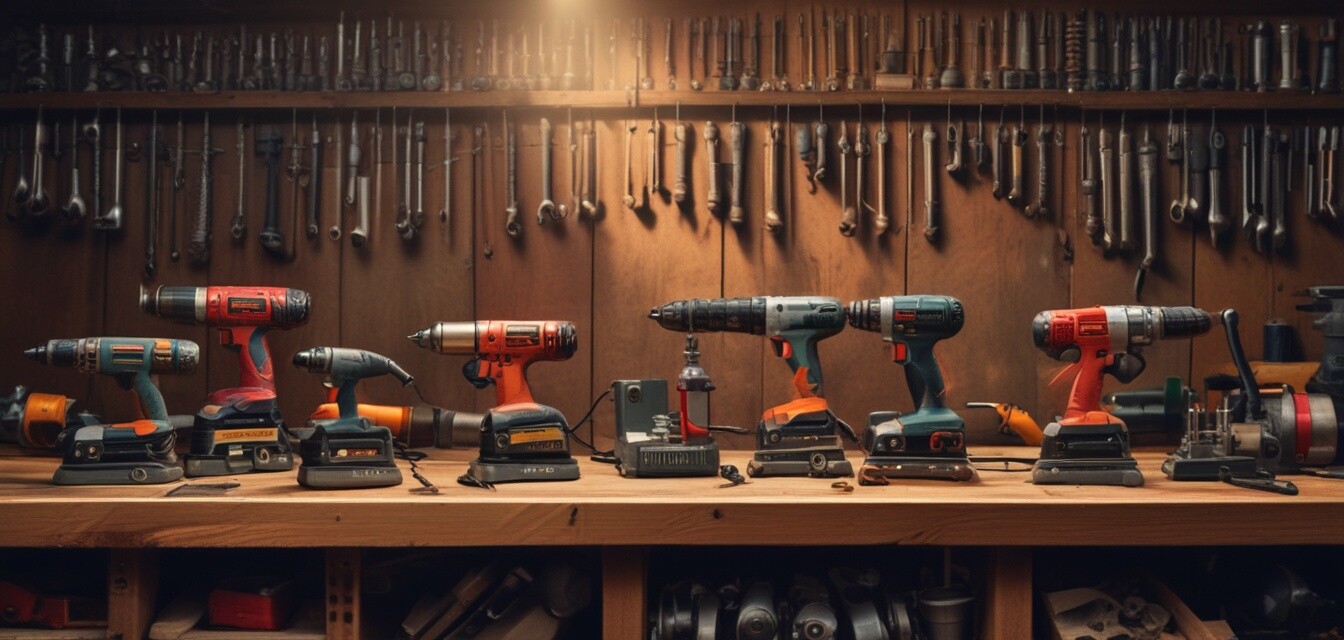
Top Corded Power Tools for Heavy-Duty Applications
Key Takeaways
- Corded power tools are ideal for heavy-duty applications due to their continuous power supply.
- Look for tools with high wattage for enhanced performance in industrial settings.
- Consider durability and ergonomics for longer working periods.
- Weight and ease of use are critical factors when selecting the right tool.
- Be aware of the differences between corded and cordless tools for your specific needs.
When it comes to tackling heavy-duty tasks in industrial settings, corded power tools often lead the way, offering continuous power and robust performance. Whether you are a contractor or a DIY enthusiast, understanding the best corded options currently available can assist you in making an informed decision. In this article, we will explore some top picks, the essential features to look for, and provide comparisons to guide your selection process.
What to Consider When Choosing Corded Power Tools
Choosing the right corded power tools involves several key factors:
- Wattage: Higher wattage typically means more power. For heavy-duty applications, look for tools above 10 amps.
- Durability: Check for tools built with robust materials that can withstand tough conditions.
- Weight: Heavier tools can provide more stability, but they can also lead to fatigue over extended use.
- Safety Features: Always look for safety features like guards and triggers for protection during use.
- Ergonomics: Tools designed with comfort in mind reduce strain and enhance control.
Comparison of Corded Power Tools
| Tool Type | Wattage | Typical Use | Weight |
|---|---|---|---|
| Drill | 7.5 - 15 Amps | Drilling in concrete, wood, metal | 4 - 6 lbs |
| Saw | 10 - 15 Amps | Cuts through wood or metal | 6 - 12 lbs |
| Grinder | 8 - 15 Amps | Grinding, polishing, cutting | 4 - 8 lbs |
| Impact Driver | 6 - 15 Amps | Loosening bolts, driving screws | 3 - 5 lbs |
| Sander | 8 - 10 Amps | Sanding surfaces | 3 - 5 lbs |
Pros and Cons of Corded Power Tools
Pros
- Consistent power supply for prolonged tasks
- Generally more powerful than their cordless counterparts
- Lower initial cost
- No need to worry about battery life
Cons
- Limited range due to power cord length
- Can be less portable compared to cordless tools
- May require an extension cord for certain tasks
Popular Applications for Corded Power Tools
Corded power tools cater to various heavy-duty applications, such as:
- Construction work
- Metalworking
- Woodworking
- Automotive repair
- Renovations and remodeling
Maintenance Tips for Corded Power Tools
Keeping your corded power tools in top condition helps ensure their longevity and optimal performance. Here are some maintenance tips:
- Always unplug tools after use to prevent accidents.
- Regularly check power cords for damage and replace if necessary.
- Clean tools after each use to remove dust and debris.
- Lubricate moving parts as recommended by manufacturers.
- Store tools in a dry, safe location to prevent rust and deterioration.
Where to Buy Corded Power Tools
While there are numerous outlets for purchasing corded power tools, you can find a variety of options at the following links on our site:
Conclusion
Corded power tools stand out for their durability and reliability in heavy-duty applications. By considering key features such as wattage, ergonomics, and maintenance, you can make informed decisions that will support your work requirements effectively. Explore our Buying Guides to learn more about tools that fit your specific needs.